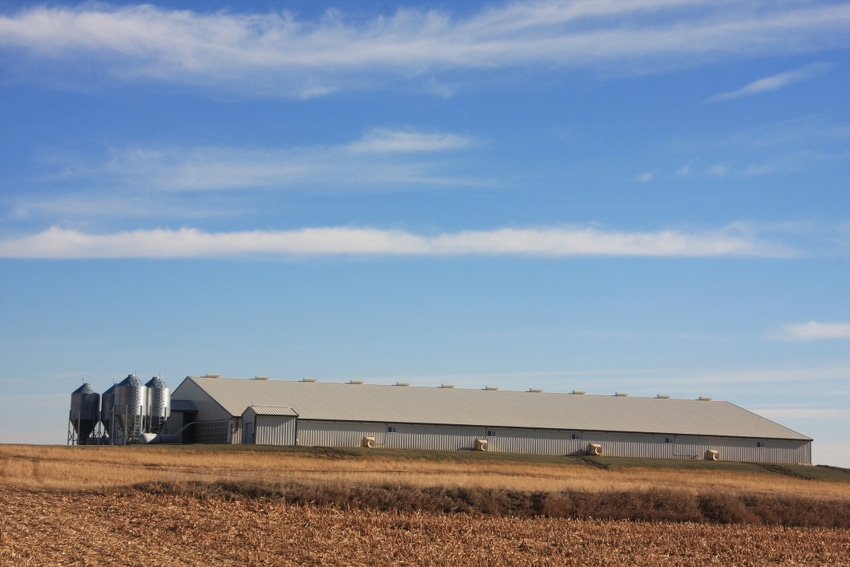Microalgae culture to recover nutrients from manure
European project to convert manure to algae-based animal feed.
July 15, 2019

ALG-AD, a project funded by Interreg Northwest Europe, is developing a new technology to use excess nutrients produced by the anaerobic digestion of food and agricultural waste to grow algal biomass for animal feed and other valuable products, according to an announcement from Cooperl, a private swine production cooperative based in France. Cooperl is a partner on the project.
ALG-AD deals with the reuse of waste as part of a sustainable economy, reducing pollution risks and dependence on imports of raw materials, Cooperl said. Northwestern Europe is a densely populated area where intensive agriculture contributes disproportionately to the production of food and agricultural waste in the European Union, the cooperative said.
In order to reduce those impacts, anaerobic digestion is used by converting this waste into biogas and nutrient-rich liquid digestats. Each site produces between 4,000 and 70,000 tons per year of digestats, the majority of which are applied to crop ground (bio-fertilizing), but strict regulatory limits are imposed under EU regulations to prevent eutrophication risks, Cooperl said.
The majority of northwestern Europe is subject to this directive (58% U.K. and 100% Brittany and Flanders), resulting in a critical excess of nutrients, the cooperative said. The ALG-AD project combines microalgae culture with anaerobic digestion to recycle nutrient-rich biomass digestats for sustainable feed production, Cooperl said.
Cooperl explained that the technology was implemented and tested in situ collaboratively at three separate sites — Devon, U.K.; Brittany, France, and Flanders, Belgium — that were chosen to reflect the heterogeneity of the northwestern Europe region, from rural to urban areas as well as various biodegradable types of waste and and regulatory contexts. The demonstration to stakeholders and the development of decision-making tools will enable its adoption.
This process would allow the treatment and recovery of nitrogen contained in nutrient-rich digestats that would otherwise pollute nitrate-vulnerable areas but would also produce dry algal biomass for livestock feed that could replace imported proteins, thereby improving food security, Cooperl said.
Cooperl is involved in this project through its research and development activity both in the environment and in animal feed. The cooperative welcomed the French pilot and is providing its industrial facilities and microalgae production skills. Cooperl teams will conduct pig feeding trials using ingredients derived from the microalgae growing process, the cooperative said.
Source: Cooperl, which is solely responsible for the information provided and is wholly owned by the source. Informa Business Media and all its subsidiaries are not responsible for any of the content contained in this information asset.
You May Also Like



